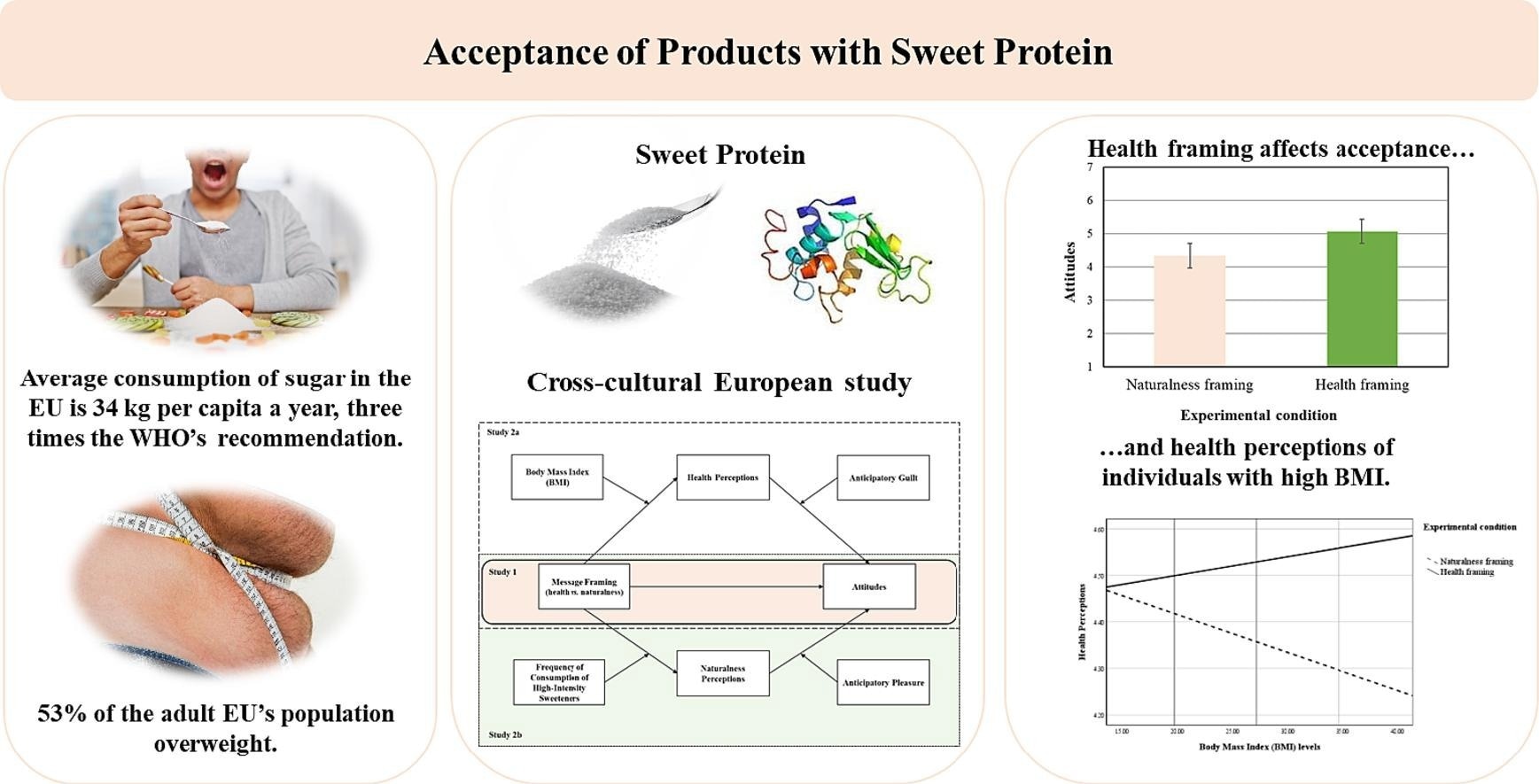In a recent study published in the journal Food Research International, researchers explored the role of message framing in promoting the consumption of alternative sweeteners, specifically sweet proteins, to reduce sugar consumption. Their findings indicate that individuals are more likely to be influenced by messaging highlighting sugar substitutes' health benefits, though focusing on their lack of artificial ingredients is also beneficial.
 Study: Beyond sugar: Exploring the influence of health and naturalness framing on attitudes towards products with sweet proteins in Europe
Study: Beyond sugar: Exploring the influence of health and naturalness framing on attitudes towards products with sweet proteins in Europe
Background
Estimates suggest that European Union residents consume an average of 34 kg of sugar each year, more than thrice the amount recommended by the World Health Organization. The increase in sugar consumption has a deleterious effect on public health and has been associated with rising obesity rates. Strategies such as taxing sugary foods and beverages, strengthening nutritional labeling regulations, and reducing the marketing of these foods to children have not had the desired effect of reducing their consumption.
However, breakthroughs in precision fermentation have allowed scientists to develop 'sweet proteins' such as thaumatin, which is easily digestible and non-allergenic. Notably, they are created using yeast to express and isolate proteins occurring naturally in some fruit. They are a promising alternative to artificial sweeteners such as sucralose and aspartame without the associated health risks.
It is critical to market the novel sweet proteins in a way that influences consumer attitudes and perceptions and translates to reduced sugar consumption. Previous research has indicated that perceptions of health and naturalness have a role to play and may be moderated by body mass index (BMI) and emotions associated with sugar consumption, like anticipatory guilt.
About the study
In the present study, researchers investigated how health and naturalness perceptions influenced attitudes toward products containing sweet proteins. A subsequent study also assessed the factors that moderate this relationship, such as BMI and anticipatory guilt for health messaging, previous consumption of alternative sweeteners, and anticipatory pleasure for naturalness messaging.
The researchers tested these influences experimentally by presenting similar messages that only differed in how they described sweet proteins. The health frame focused on their health benefits as a sugar alternative, while the naturalness frame highlighted their differences from currently available artificial sweeteners. To be eligible for the study, participants needed to be between 20 and 70 years old and either be decision-makers for their households or share responsibility for food purchases.
Researchers assessed perceptions of the proteins by asking participants to rate the items on Likert scales where higher values indicated higher agreement with statements related to their benefits. Other questions elicited the degree of accountability, responsibility, and guilt participants feel when consuming sugary foods. Participant BMI was calculated from self-reported information. Sociodemographic characteristics were also included. The data was analyzed using methods such as analysis of covariance and regression-based path analysis, with country of residence as a covariate.
Findings
For the main experiment on the role of product messaging (health vs. naturalness), data were collected from 296 participants in Denmark, of whom 147 received naturalness messages and 149 received health messages. Half of the participants were male, and the average age was 27 years.
The analysis indicated a significant difference in attitudes towards sweet proteins between the two groups. Participants who received the health-related messaging reported an average favorability of 5.07 out of a maximum of 7, as compared to 4.34 for those who received naturalness messaging. Gender and age did not show significant correlations with attitudes to the products.
In the subsequent study, researchers focused on three countries whose residents have shown interest in reducing sugar consumption – Poland, Germany, and Denmark. There were approximately 1,000 participants from each country, of whom half received messages related to each experimental condition (health and naturalness). They were 45.59 years old on average, and 48% were male.
Similar to the main study, participants across all three countries once again reported more positive attitudes when exposed to the health framing. There was a slight but significant negative effect of BMI on health perceptions with a slope of -0.008. Bootstrapping techniques showed this perception was particularly significant for those with medium to high BMI levels. The implication is that health message framing increases health perceptions for those at high BMI levels. Similarly, anticipatory guilt translated to more favorable product attitudes for those who received health messages.
Researchers found a marginally significant result for the naturalness messaging, indicating that participants who consume more sweeteners may perceive sweet proteins more positively. They also established that anticipatory pleasure moderates the effect of the naturalness messaging, implying that those who already consume sweeteners may be more receptive to this message because they anticipate the enjoyment of consuming them.
Conclusions
The study generated novel insights into how sweet proteins can be promoted to consumers to reduce sugar consumption and improve health outcomes. However, the authors acknowledge that while attitudes are crucial, they may not always translate to behavior and consumption. Further study should strengthen these findings through behavioral data.